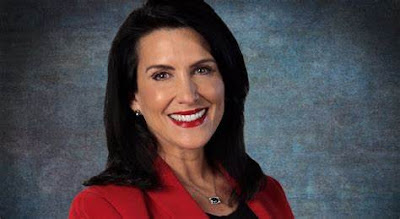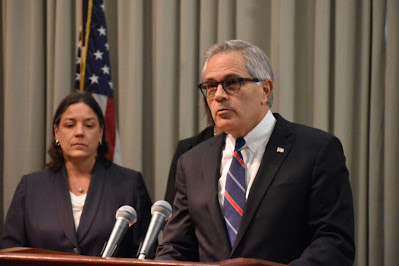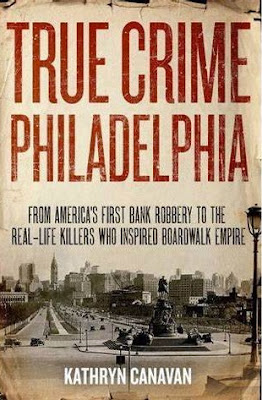Broad + Liberty ran my piece on serial shoplifters.
You
can read the piece via the below link or the below text:
Paul Davis: Free for the taking? We need to crack down on serial shoplifters. (broadandliberty.com)
I
accompanied my wife into a neighborhood pharmacy and convenience store, one of
many such stores belonging to a popular chain across the city, as she wanted to
buy a pint of ice cream.
I
tried to open the freezer door where the ice cream was stored, but it would not
open. Surprised that the door was locked, I saw a red button that instructed
one to press for customer service to come and unlock the freezer’s door.
I
can certainly understand why some items must be placed under lock and key due
to shoplifters, such as expensive cologne and perfume. But ice cream?
A
store manager came over and unlocked the freezer door and allowed us to extract
the ice cream we wanted. I asked her why the ice cream was locked up and she
replied that a particular person regularly came into the store and stole all of
the ice cream containers. So the store locked the freezer and inconvenienced
customers and store workers to thwart one serial shoplifter.
That’s
crazy, I said. Can’t you call the police when you see your serial ice cream
shoplifter?
No,
she said. She was told that the shoplifter must steal $1,000 worth of items
before the police can arrest him. And she said that the store’s employees were
instructed not to impede the shoplifters or touch them in any way. If they do,
they will be fired. I assume the store would rather lose pints of ice cream
than lawsuits.
So,
this particular serial shoplifter wandered happily into the store periodically,
grabbed all of the ice cream containers, and simply strolled out.
I
suggested, somewhat in jest, that the store ought to place a $975 piece of
jewelry in an empty ice cream container so when the shoplifter grabbed his
armful share of ice cream containers, the items’ value would exceed the $1,000
threshold and he could be arrested and prosecuted. The manager laughed and
shook her head.
The
corporate solution here and across the country is to place certain items behind
locked doors and have a store employee respond to the call to unlock the
freezer or cabinet for legitimate customers. The store then passes on the
jacked-up price of the items to the hapless customer to cover the employees’
additional duty.
So
why aren’t serial shoplifters being prosecuted?
The
Philadelphia District Attorney’s Office’s policy regarding prosecution of
retail theft and certain other crimes were put in place in 2018 by District
Attorney Larry Krasner in an effort, as the policy statement notes, “to end
mass incarceration and bring balance back to sentencing.”
But,
frankly, there is no such thing as “mass incarceration.” All suspects who are
arrested, prosecuted and convicted are sentenced to prison individually.
According
to the DA’s retail theft policy:
1. Charge
and dispose of Retail Theft cases as summary offenses unless the value of the
item (s) stolen in a particular case exceeds $500.00 or where the defendant has
a very long history of theft and retail theft convictions.
2. You
must seek supervisory approval to charge and dispose of retail theft cases at
misdemeanor or felony levels.
3. Remember,
that a summary conviction permits a sentence of 90 days incarceration, fines of
up to $250, and full restitution. These penalties are sufficient to hold a
retail thief accountable. 4. In all cases, seek full restitution.
Back
in April, after Krasner and police officials were grilled by City Council
members about the increase in shoplifting and wanted to know how the police and
the DA were handling the cases, Krasner held a press conference at 40th and
Lancaster Avenue.
Krasner
spoke of his policy to treat most retail theft under $500 as a summary offense,
the lowest possible charge.
“Under
the policy, which we have had since the beginning, people who have minimal
contacts in terms of retail thefts and who take less than $500 are going to
have their cases charged as a summary offense. A summary offense can put you in
jail for 90 days,” Krasner said. “Once you hit your third contact, you are no
longer going to be in the bucket that is oriented towards mercy. You are going
to be in the bucket where we are going to charge you at the highest levels
permitted by the statutes.”
But,
as any cop will tell you, most arrests for retail theft are eventually
downgraded by the DA’s office to summary offenses, and the summons are ignored
routinely by the repeat offenders.
One
cop told me he knew all of the repeat shoplifter offenders in his district, as
do the store managers and small business owners, but he was unable to keep them
locked up.
As
many of the repeat shoplifter offenders are juveniles, homeless, alcohol or
drug-addicted, or mentally ill, another cop told me that it is easier for the
corporate store owners, the police, the prosecutors, and the court to turn a
blind eye to the blatant retail thefts.
Yet,
these thefts are causing some small businesses to go out of business and
causing some of the corporate chain stores to pack up and move to another
location where they are less likely to be hit by repeat
offenders.
The
serial shoplifters, especially the huge gangs of “smash and grab” shoplifters,
do not fear the police, the DA, or the courts. They think it is all a joke and
they can be viewed on security footage laughing as they bolt from the store
with their stolen items. These serial shoplifters love their license to steal.
All
of the cops, the store managers and the small business owners that I’ve spoken
to say it is high time for the Philadelphia District Attorney to crack down on
serial shoplifters and properly punish them.
Paul Davis, a Philadelphia writer and frequent contributor to Broad + Liberty, also contributes to Counterterrorism magazine and writes the On Crime column for the Washington Times. He can be reached via www.pauldavisoncrime.com.



.jpg)
.jpg)
















.jpg)
.jpg)
.jpg)
.jpg)
.jpg)






.png)
